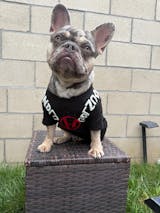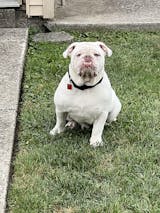Senior Dog Health: 10 Tips on Caring for Your Aging Dog
As our cherished furry friends age, they face many of the same challenges that we do: changing health needs, decreased energy, and a greater susceptibility to illnesses. Just like people, senior dogs require a bit more attention and specialized care to ensure they remain happy and comfortable. If you have an aging dog, here are some essential dog care tips to help maintain their health and well-being.

1. Proper Nutrition:
Nutrition is a crucial aspect to maintaining your senior dog’s health. Aging dogs often have different dietary needs than their younger counterparts. They may require a diet that is lower in calories but higher in quality protein and fiber. Additionally, senior dogs can benefit from foods enriched with antioxidants, omega-3 fatty acids, and joint-supporting supplements like glucosamine and chondroitin.
2. Exercise and Mental Stimulation:
While older dogs may not have the same energy levels as they did in their youth, regular exercise remains important. Moderate, low-impact activities like short walks or gentle play sessions can help maintain muscle mass and joint mobility. Mental stimulation is equally vital; puzzle toys and training exercises can keep your dog’s mind sharp and engaged.
3. Comfortable Living Environment:
Creating a comfortable and safe environment for your senior dog can make a big difference in their quality of life. Provide a soft, supportive bed in a quiet area of the house to help alleviate any joint discomfort. Non-slip rugs or mats can help prevent falls on slippery floors, and pet stairs or ramps can make it easier for your dog to access their favorite spots.
4. Dental Care:
Dental health often declines with age, leading to issues like gum disease and tooth loss. Regular brushing of your dog’s teeth and providing dental chews or toys can help keep their teeth clean. Annual dental check-ups are also essential to address any potential problems before they become serious.
5. Monitor Weight and Adjust Diet Accordingly:
Obesity can be a significant issue in senior dogs, as it worsens joint problems and increases the risk of other health conditions. Regularly monitor your dog’s weight and body condition, and adjust their diet as needed.
6. Joint Health and Mobility:
Arthritis and other joint issues are common in older dogs. Signs include stiffness, difficulty getting up, or reluctance to exercise. You may be recommend joint supplements, medications, or physical therapy to improve your dog’s mobility and comfort. Providing a supportive bed and avoiding activities that put unnecessary stress on the joints can also help.
7. Be Aware of Behavioral Changes:
Changes in behavior can be an indicator of health issues. Cognitive dysfunction syndrome (similar to dementia in humans) can affect older dogs, leading to disorientation and other behavioral changes. There are treatments and management strategies available to help these pups.
8. Monitor for Common Senior Dog Conditions:
Be vigilant for signs of common senior dog conditions, such as:
-
Vision and Hearing Loss: Dogs may have difficulty seeing or hearing as they age. You might notice them bumping into things or not responding to commands.
-
Kidney Disease: Symptoms can include increased thirst and urination, weight loss, and a decreased appetite. Early diagnosis and management can significantly impact your dog’s quality of life.
-
Heart Disease: Look for signs such as coughing, difficulty breathing, or lethargy. Regular check-ups can help monitor heart health and manage any issues that arise.
9. Regular Vet Visits:
-
Senior dogs should see their veterinarian at least twice a year for check-ups. These visits allow for early detection of common age-related issues such as arthritis, dental disease, and organ dysfunction. Your vet can also recommend a senior-specific diet or supplements to support your dog’s health.
10. Regular Grooming Routines:
- Maintaining a regular grooming routine is important for keeping your senior dog comfortable and healthy. One crucial aspect of grooming is ensuring your dog's nose stays well-hydrated. Try Squishface Nose Balm, enriched with shea butter and berry seed oils to help keep their nose hydrated and prevent dryness or cracking.
- For daily ear care, Squishface Ear Wipes are an excellent choice. These wipes are designed to clean and remove wax effectively while being gentle on sensitive ears. Their unique finger sheath design makes the process incredibly easy and convenient, allowing you to clean your dog’s ears thoroughly without fuss. Incorporating these products into your grooming routine can significantly enhance your senior dog's comfort and overall well-being.
The Bottom Line:
Caring for a senior dog requires extra patience and compassion, but it’s also incredibly rewarding. By maintaining a daily grooming routine with the help of Squishface products, paying close attention to their health, and making appropriate adjustments, you can help ensure that your aging furry friend enjoys their golden years to the fullest.
Be sure to follow us on TikTok, Instagram, Facebook, Pinterest, YouTube, and visit our blog weekly for more tips on caring for your adored doggo, and the latest on all things Squishface!










